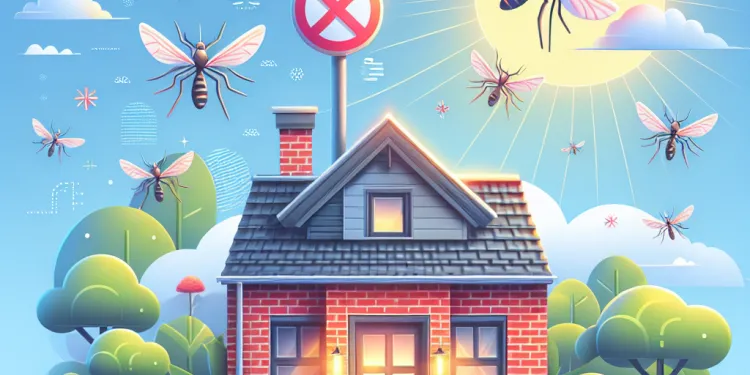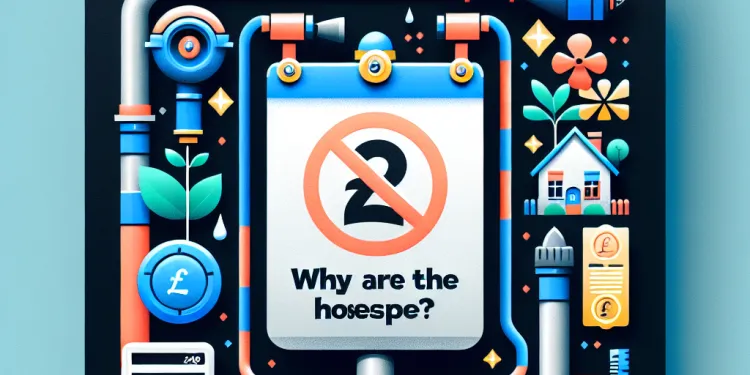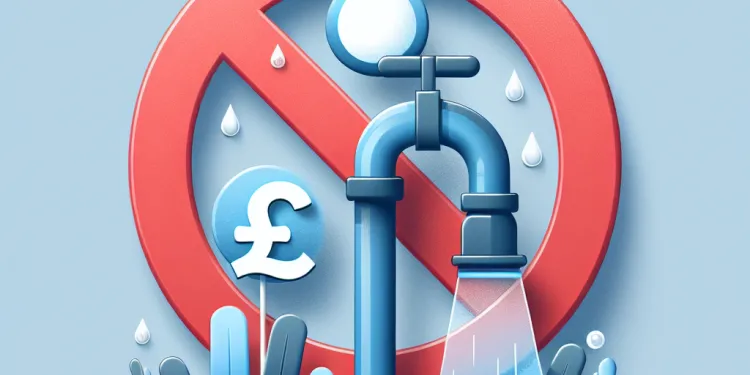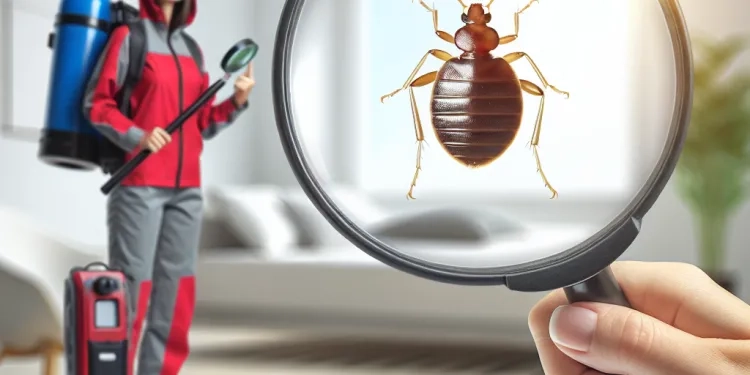
Find Help
More Items From Ergsy search
-

How can I kill bamboo in my garden?
Relevance: 100%
-

Do hosepipe bans apply to public parks and gardens?
Relevance: 31%
-

Can freezing rice kill harmful bacteria?
Relevance: 29%
-

Can old rice kill me?
Relevance: 29%
-

Can old rice kill me?
Relevance: 25%
-

How can I prevent mosquitoes from breeding near my home?
Relevance: 13%
-

Are there eco-friendly mosquito screen options?
Relevance: 13%
-

What items should I wash if I have bed bugs?
Relevance: 12%
-

What are some accessible hobbies for those with mobility issues?
Relevance: 12%
-

Are there any natural remedies for bed bugs?
Relevance: 12%
-

What qualifications do I need to work for the National Trust?
Relevance: 11%
-

What are the options for interring ashes?
Relevance: 11%
-

Are there non-venomous spiders in the UK?
Relevance: 11%
-

How should household items be cleaned after a scabies infection?
Relevance: 10%
-

Building a Healthy Home Environment
Relevance: 10%
-

Can I use a watering can during a hosepipe ban?
Relevance: 10%
-

How big can spiders in the UK get?
Relevance: 10%
-

Can nits hatch into lice?
Relevance: 10%
-

What role do libraries play in helping older adults find hobbies?
Relevance: 10%
-

What is a hosepipe ban?
Relevance: 10%
-

Why are hosepipe bans imposed?
Relevance: 10%
-

Can nettle rash be prevented?
Relevance: 10%
-

Is orange juice pasteurization important?
Relevance: 9%
-

Why is rice particularly risky for food poisoning?
Relevance: 9%
-

What happens if a hosepipe ban is ignored?
Relevance: 9%
-

What is a green or eco-friendly funeral?
Relevance: 9%
-

Are there any initiatives to reduce food waste in schools?
Relevance: 9%
-

Is a hosepipe ban legally enforceable?
Relevance: 9%
-

Do I need a coffin for a natural burial?
Relevance: 9%
-

How long can I keep rice in the refrigerator?
Relevance: 9%
-

Do nits live off the scalp?
Relevance: 9%
-

What is the role of consumers in reducing water loss?
Relevance: 9%
-

Is uncooked rice dangerous?
Relevance: 9%
-

Can I get E.coli from lettuce ?
Relevance: 8%
-

Can you keep the ashes at home in the UK?
Relevance: 8%
-

Can water companies enter my property to enforce a hosepipe ban?
Relevance: 8%
-

Is it safe to eat reheated rice?
Relevance: 8%
-

How can technology help older adults find new hobbies?
Relevance: 8%
-

Antibiotics and You: An introduction to antibiotic resistant infections
Relevance: 8%
-

Can I get rid of bed bugs myself?
Relevance: 8%
Understanding Bamboo in Your Garden
Bamboo is a popular choice for gardens due to its rapid growth and attractive appearance. However, it can quickly become invasive, spreading into areas where it's not wanted. If you’re dealing with an unwanted bamboo invasion, you'll need to take specific steps to eradicate it effectively.
Identify the Type of Bamboo
In the UK, bamboo types are generally classified as either clumping or running. Clumping bamboo grows in compact clusters and is less invasive, while running bamboo can spread rapidly through rhizomes underground. Identifying the type of bamboo in your garden is essential as running bamboo is typically more challenging to remove.
Manual Removal Techniques
One of the most effective ways to remove bamboo is through manual digging. Begin by cutting down all the bamboo culms (stalks) as close to the ground as possible. This will make it easier to access the roots. Dig up the root mass and rhizomes, ensuring you remove every part of the root system to prevent regrowth. This method requires persistence and thoroughness but can be effective for smaller infestations.
Using Herbicides
If manual removal is not viable due to the size of the infestation, you may consider using herbicides. Select a glyphosate-based herbicide, which is most effective for bamboo. Apply the herbicide to freshly cut bamboo stumps to allow it to penetrate and travel to the root system. It's essential to read and follow the manufacturer's instructions carefully and consider any environmental impacts before use.
Maintaining Control
Once you’ve removed the bamboo, regular maintenance is crucial to prevent it from returning. Monitor the area regularly and remove any new shoots promptly. Consider installing a root barrier around the area to prevent rhizomes from spreading back into the garden. These barriers should be made of durable material and need to be buried at least 60cm deep to be effective.
Consider Professional Help
If you find that the bamboo infestation is difficult to manage on your own, it may be worthwhile to hire professional garden or landscaping services. Professionals have the expertise and equipment to deal with extensive bamboo problems effectively and safely.
Preventing Future Invasions
To prevent future bamboo invasions, consider planting less aggressive species or growing bamboo in containers with sturdy barriers. This approach will allow you to enjoy the visual appeal of bamboo without the risk of it spreading uncontrollably.
Conclusion
Dealing with bamboo in your garden requires patience and determination. By identifying the type of bamboo, utilizing appropriate removal techniques, and maintaining vigilance, you can successfully control and prevent bamboo from becoming a persistent problem in your garden. Always consider environmental factors and safety when employing chemical solutions.
Understanding Bamboo in Your Garden
Bamboo is a plant that grows fast and looks nice. Many people like it in their gardens. But bamboo can spread very quickly and take over places where you don't want it. If you have too much bamboo that you don't want, you need to do certain things to get rid of it.
Identify the Type of Bamboo
There are two main kinds of bamboo: clumping and running. Clumping bamboo stays in one place and doesn't spread much. Running bamboo spreads fast and goes underground. It's important to know which kind you have. Running bamboo is harder to get rid of.
Manual Removal Techniques
One way to get rid of bamboo is by digging it up. First, cut the bamboo stalks down as low as you can. This makes it easier to reach the roots. Then, dig up all the roots and parts under the ground. Make sure you get everything, or it might grow back. This can be hard work but works well for small areas.
Using Herbicides
If you can't dig it all up because there is too much bamboo, you can use special chemicals called herbicides. Choose a herbicide that has glyphosate. Put the herbicide on the bamboo stumps you cut. This helps stop it from growing back. Read the instructions carefully and think about how it might affect the environment.
Maintaining Control
After removing bamboo, keep checking your garden. Look for any new bamboo shoots and remove them quickly. You can also put a barrier underground to stop bamboo from spreading. This barrier should go at least 60cm deep and be made of strong material.
Consider Professional Help
If there is too much bamboo and it’s hard for you to manage, you can hire a professional gardener. They know how to deal with big bamboo problems and have the right tools to do it safely.
Preventing Future Invasions
To stop bamboo from taking over in the future, you can plant bamboo that doesn’t spread as much or grow it in pots with strong barriers. This way, you can enjoy how bamboo looks without it spreading everywhere.
Conclusion
To manage bamboo in your garden, you need to be patient and work hard. Know what kind of bamboo you have and use the right ways to remove it. Keep an eye on your garden to stop bamboo from being a problem again. Always think about the safety and the environment before using chemicals.
Frequently Asked Questions
What is the most effective way to kill bamboo in my garden?
The most effective way is to combine physical removal with chemical treatments, like glyphosate or a bamboo-specific herbicide.
Can I kill bamboo without using chemicals?
Yes, you can repeatedly cut bamboo to the ground and cover the area with heavy mulch or tarps to block sunlight, eventually starving the bamboo.
How often should I cut bamboo shoots to kill it?
You should cut bamboo shoots every few weeks during the growing season to deplete its energy reserves.
What chemicals are effective for killing bamboo?
Glyphosate and imazapyr are commonly recommended herbicides for bamboo eradication.
Can vinegar kill bamboo?
Vinegar can kill the surface leaves, but it is not usually effective in killing the entire bamboo plant and root system.
Is it necessary to dig up bamboo roots?
Yes, digging up the roots can help prevent regrowth and is often combined with cutting and chemical treatments for best results.
How deep do bamboo roots go?
Bamboo roots typically extend 12-18 inches deep, but rhizomes can spread out widely, making full removal challenging.
Can covering bamboo help in killing it?
Yes, covering bamboo with tarps or landscape fabric to block sunlight can help weaken and kill the plant over time.
How long does it take to kill bamboo completely?
It can take several months to a few years, depending on the method and persistence in treatment.
Should I burn bamboo to kill it?
Burning is not recommended, as it can spread quickly and does not kill the underground rhizomes.
Will salt kill bamboo?
Salt can damage bamboo but is not a practical or environmentally friendly method for killing it. It can also harm surrounding soil and plants.
What's the best time of year to kill bamboo?
Early spring or late fall is ideal, as the plant is either actively growing or storing energy, making herbicide treatments more effective.
Do I need professional help to remove bamboo?
If the infestation is large or persistent, professional help might be needed, especially for chemical treatments and excavation.
Can I prevent bamboo growth in the first place?
Yes, installing an underground barrier at least 28 inches deep can help contain bamboo and prevent spreading.
How do I keep bamboo from encroaching on my property?
Regular maintenance, installing barriers, and vigilant removal of new shoots can help keep bamboo in check.
Are there any natural predators that can control bamboo?
There are no natural predators that effectively control bamboo; management typically requires human intervention.
How does rhizome removal work for killing bamboo?
Rhizome removal involves digging out underground stems of bamboo to prevent regrowth, which can be labor-intensive.
Can bamboo regrow after cutting?
Yes, bamboo regrows vigorously after cutting unless it is repeatedly cut or treated with herbicides to exhaust energy reserves.
How can I ensure bamboo doesn’t return after removal?
Continuous monitoring, removing new shoots, and treating the area with herbicides will help ensure it doesn’t return.
Why is it so difficult to kill bamboo?
Bamboo has a very resilient root system and can spread quickly, making it difficult to eradicate completely without persistent efforts.
How can I get rid of bamboo in my garden?
Bamboo can be hard to remove. Here are easy steps you can try:
1. Cut the bamboo close to the ground. Use a strong tool like garden clippers.
2. Cover the ground with a thick tarp or black plastic. This stops sunlight and starves the bamboo.
3. Check the area often. Remove any new bamboo shoots.
You can also ask a garden expert for help. They might have special tools or sprays that can help.
The best way to get rid of bamboo is to pull it out and use a special spray. The spray is called glyphosate or you can use one just for bamboo.
How can I get rid of bamboo without using chemicals?
Bamboo can be hard to remove, but you can do it without chemicals. Here are some simple steps:
- Cut the bamboo close to the ground with a sharp tool.
- Keep cutting any new shoots as soon as they appear.
- Cover the area with a thick tarp or black plastic to block sunlight.
- Make sure the cover is secure and leave it for several months.
Using tools like a spade or garden fork can help. It may take time, but you can do it!
Yes, you can cut the bamboo all the way to the ground many times. Then, put heavy mulch or tarps on top to block the sunlight. This will stop the bamboo from growing.
How often should I cut bamboo to stop it from growing?
If you want to stop bamboo from growing, you need to cut it a lot. Cut the new bamboo shoots often. Try to do this every time you see new shoots. This will help stop the bamboo from growing bigger.
You can use these tools to help:
- Garden shears or a strong pair of scissors
- A spade or shovel if the bamboo is thick
Cutting often makes the bamboo weaker. Over time, the bamboo will stop growing.
Cut the bamboo shoots every few weeks when they are growing. This will make them use up their energy.
What can kill bamboo plants?
Bamboo is a strong plant. It can be hard to stop it from growing.
Some chemicals can help kill bamboo. They stop bamboo from growing.
Here are some ways to help:
- Read what is on the chemical bottle.
- Be careful. Use gloves and goggles.
- Ask an adult for help.
- You can also try cutting bamboo. This can make it grow less.
Glyphosate and imazapyr are strong chemicals. People use them to get rid of bamboo plants.
Does vinegar kill bamboo?
Vinegar is a strong liquid. It can be used to stop plants from growing. Some people use vinegar to help get rid of bamboo. It might not work for big plants because bamboo is very strong. It can help with little plants.
If you are trying to stop bamboo from growing, you might need other ways too.
You can:
- Cut the bamboo down often.
- Dig up the roots.
- Use special plant killers from the store.
You might need a grown-up to help with these jobs.
Vinegar can kill the leaves on top of the bamboo. But it does not usually kill the whole bamboo plant and roots.
Do I need to take out bamboo roots?
Yes, digging up the roots can help stop them from growing back. It is good to do this along with cutting and using special chemicals for the best results.
How deep do bamboo roots go?
Bamboo is a plant. It has long roots. These roots are called rhizomes.
The roots do not go very deep. They stay close to the top of the soil.
Most bamboo roots only go 2 to 3 feet down. That's about the height of a small child!
Would you like to learn more about plants? Try using picture books or videos. They can help!
Bamboo roots usually grow 12-18 inches deep into the ground. But the stems that grow sideways, called rhizomes, can spread out a lot. This can make it hard to remove all of the bamboo.
For more help, you can use tools like pictures or diagrams. They can show you how bamboo grows and spreads. You can also break down tasks into small steps to make it easier to handle.
Can covering bamboo help to kill it?
Yes, you can put sheets or special garden fabric over bamboo to block the sunlight. This will make the bamboo weaker and it might die after a while.
How long does it take to get rid of bamboo fully?
Bamboo can be very hard to get rid of. It might take a lot of time and work.
You may need to cut it down and dig up the roots many times.
Some people use special sprays to help kill it.
Keep trying and be patient.
Ask someone for help if you need it.
Getting better can take a long time. It might take a few months or even a few years. It depends on how you are getting help and how hard you keep trying.
Can I burn bamboo to get rid of it?
Burning is not a good idea. Fire can move fast and does not get rid of plant roots under the ground.
Can salt make bamboo die?
Salt can hurt bamboo, but it's not a good way to get rid of it. Salt can also hurt the soil and plants nearby.
When is the best time of year to get rid of bamboo?
The best time to use weed killer is in early spring or late fall. In spring, the plants are growing. In fall, they are saving up energy. This makes the weed killer work better.
Do I need a pro to get rid of bamboo?
Taking out bamboo can be tough. It grows fast and spreads everywhere. Here are some things to think about:
Getting Help:
- A pro can make sure all parts of bamboo are gone. They have special tools and skills.
- Working with bamboo can be hard work, and pros can do it safely.
Doing It Yourself:
- If you want to try yourself, be ready for a lot of work. Bamboo has strong roots.
- Use the right tools like a spade or a saw.
Tips:
- Ask a gardener or friend if you need more help.
- Watch a video online to see how it's done.
If there are lots of pests or they keep coming back, you might need a professional to help. They can use special chemicals or dig to remove the pests.
How can I stop bamboo from growing?
Yes, you can use a wall under the ground to stop bamboo from spreading. The wall should go down at least 28 inches.
How can I stop bamboo from growing into my yard?
Take care of your bamboo by checking it often. You can put up barriers to stop it from spreading. If you see new shoots, remove them right away.
Are there any animals that eat bamboo?
Bamboo grows fast and nothing in nature stops it. People have to help cut it or control it.
How do you take out bamboo roots to stop it growing?
Taking out bamboo rhizomes means digging up the underground parts of bamboo plants so they don’t grow back. This can be hard work.
Does bamboo grow back after you cut it?
Yes, bamboo grows back quickly after you cut it. But if you keep cutting it a lot or use special sprays to stop it, it might not grow back.
How can I stop bamboo from coming back?
Keep checking the area often. Take away any new plants you see. Use special plant-killer spray if needed. This helps make sure it doesn’t come back.
Why is it hard to get rid of bamboo?
Bamboo grows very fast and can be hard to get rid of. Its roots are strong and can spread quickly. You have to work hard and keep trying to stop it from growing.
Useful Links
This website offers general information and is not a substitute for professional advice.
Always seek guidance from qualified professionals.
If you have any medical concerns or need urgent help, contact a healthcare professional or emergency services immediately.
Some of this content was generated with AI assistance. We’ve done our best to keep it accurate, helpful, and human-friendly.
- Ergsy carfully checks the information in the videos we provide here.
- Videos shown by Youtube after a video has completed, have NOT been reviewed by ERGSY.
- To view, click the arrow in centre of video.
- Most of the videos you find here will have subtitles and/or closed captions available.
- You may need to turn these on, and choose your preferred language.
- Go to the video you'd like to watch.
- If closed captions (CC) are available, settings will be visible on the bottom right of the video player.
- To turn on Captions, click settings .
- To turn off Captions, click settings again.
More Items From Ergsy search
-

How can I kill bamboo in my garden?
Relevance: 100%
-

Do hosepipe bans apply to public parks and gardens?
Relevance: 31%
-

Can freezing rice kill harmful bacteria?
Relevance: 29%
-

Can old rice kill me?
Relevance: 29%
-

Can old rice kill me?
Relevance: 25%
-

How can I prevent mosquitoes from breeding near my home?
Relevance: 13%
-

Are there eco-friendly mosquito screen options?
Relevance: 13%
-

What items should I wash if I have bed bugs?
Relevance: 12%
-

What are some accessible hobbies for those with mobility issues?
Relevance: 12%
-

Are there any natural remedies for bed bugs?
Relevance: 12%
-

What qualifications do I need to work for the National Trust?
Relevance: 11%
-

What are the options for interring ashes?
Relevance: 11%
-

Are there non-venomous spiders in the UK?
Relevance: 11%
-

How should household items be cleaned after a scabies infection?
Relevance: 10%
-

Building a Healthy Home Environment
Relevance: 10%
-

Can I use a watering can during a hosepipe ban?
Relevance: 10%
-

How big can spiders in the UK get?
Relevance: 10%
-

Can nits hatch into lice?
Relevance: 10%
-

What role do libraries play in helping older adults find hobbies?
Relevance: 10%
-

What is a hosepipe ban?
Relevance: 10%
-

Why are hosepipe bans imposed?
Relevance: 10%
-

Can nettle rash be prevented?
Relevance: 10%
-

Is orange juice pasteurization important?
Relevance: 9%
-

Why is rice particularly risky for food poisoning?
Relevance: 9%
-

What happens if a hosepipe ban is ignored?
Relevance: 9%
-

What is a green or eco-friendly funeral?
Relevance: 9%
-

Are there any initiatives to reduce food waste in schools?
Relevance: 9%
-

Is a hosepipe ban legally enforceable?
Relevance: 9%
-

Do I need a coffin for a natural burial?
Relevance: 9%
-

How long can I keep rice in the refrigerator?
Relevance: 9%
-

Do nits live off the scalp?
Relevance: 9%
-

What is the role of consumers in reducing water loss?
Relevance: 9%
-

Is uncooked rice dangerous?
Relevance: 9%
-

Can I get E.coli from lettuce ?
Relevance: 8%
-

Can you keep the ashes at home in the UK?
Relevance: 8%
-

Can water companies enter my property to enforce a hosepipe ban?
Relevance: 8%
-

Is it safe to eat reheated rice?
Relevance: 8%
-

How can technology help older adults find new hobbies?
Relevance: 8%
-

Antibiotics and You: An introduction to antibiotic resistant infections
Relevance: 8%
-

Can I get rid of bed bugs myself?
Relevance: 8%


